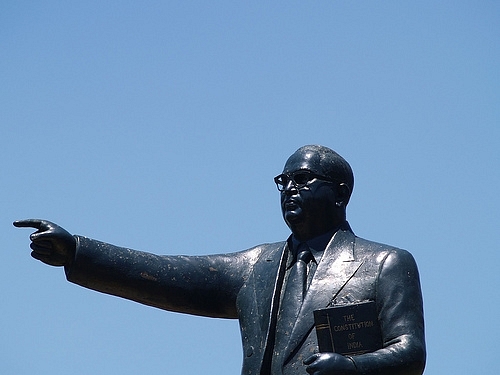Magazine
Aryans, Caste, Nationalism, Emancipation

In his essay The Unhindu Spirit of Caste Rigidity, published in the journal Bande Mataram (September 20,1907), he writes: “The Nationalist does not quarrel with the past, but he insists on its transformation, the transformation of individual or class autocracy into the autocracy, self-rule or Swaraj, of the nation and of the fixed hereditary anti-democratic caste organization into the pliable self-adapting, democratic distribution of function at which socialism aims.”
“Savitri Devi regarded Hinduism as the only living Aryan heritage in the modern world. In her eyes, Hinduism was a powerful ally in her campaign to confront and oppose the Judaeo-Christian tradition. But her Aryan-Nazi championship of Hinduism also interacted with domestic political movements in India between the wars. These movements were concerned with varieties of Hindu nationalism, conceived as an upper-caste strategy to unify and strengthen Indian society against the threat of other cultures (Islam and Christianity), while seeking to emulate the confidence and authority of the British. These movements were strongest in northern India, where the Muslim threat was more acutely perceived, and originated in Maharashtra, where Brahmin prestige had been challenged by backward caste movements from the 1870s onward. When Savitri Devi became politically active in the later 1930s, such Hindu national movements as the Hindu Mahasabha and the Rashtriya Swayamsevak Sangh were growing rapidly in an urgent response to Muslim ascendancy.”
“Sir Hari Singh Gour was responsible for raising the age of consent for girls…Sir Harbilas Sarda worked for the act which restrains child marriages. So we have much for which we must thank our men. It is not strange that now, when they want political freedom, we women are willing to stand beside them in their effort to attain it.” (Muthulakshmi Reddy, Creative Citizenship (1933) in Documenting First Wave Feminisms, Volume 1, edited by Nancy Margaret Forestell, Maureen Anne Moynagh, Nancy Forestell, University of Toronto Press, 2012, p.203)
Introducing ElectionsHQ + 50 Ground Reports Project
The 2024 elections might seem easy to guess, but there are some important questions that shouldn't be missed.
Do freebies still sway voters? Do people prioritise infrastructure when voting? How will Punjab vote?
The answers to these questions provide great insights into where we, as a country, are headed in the years to come.
Swarajya is starting a project with an aim to do 50 solid ground stories and a smart commentary service on WhatsApp, a one-of-a-kind. We'd love your support during this election season.
Click below to contribute.
Latest